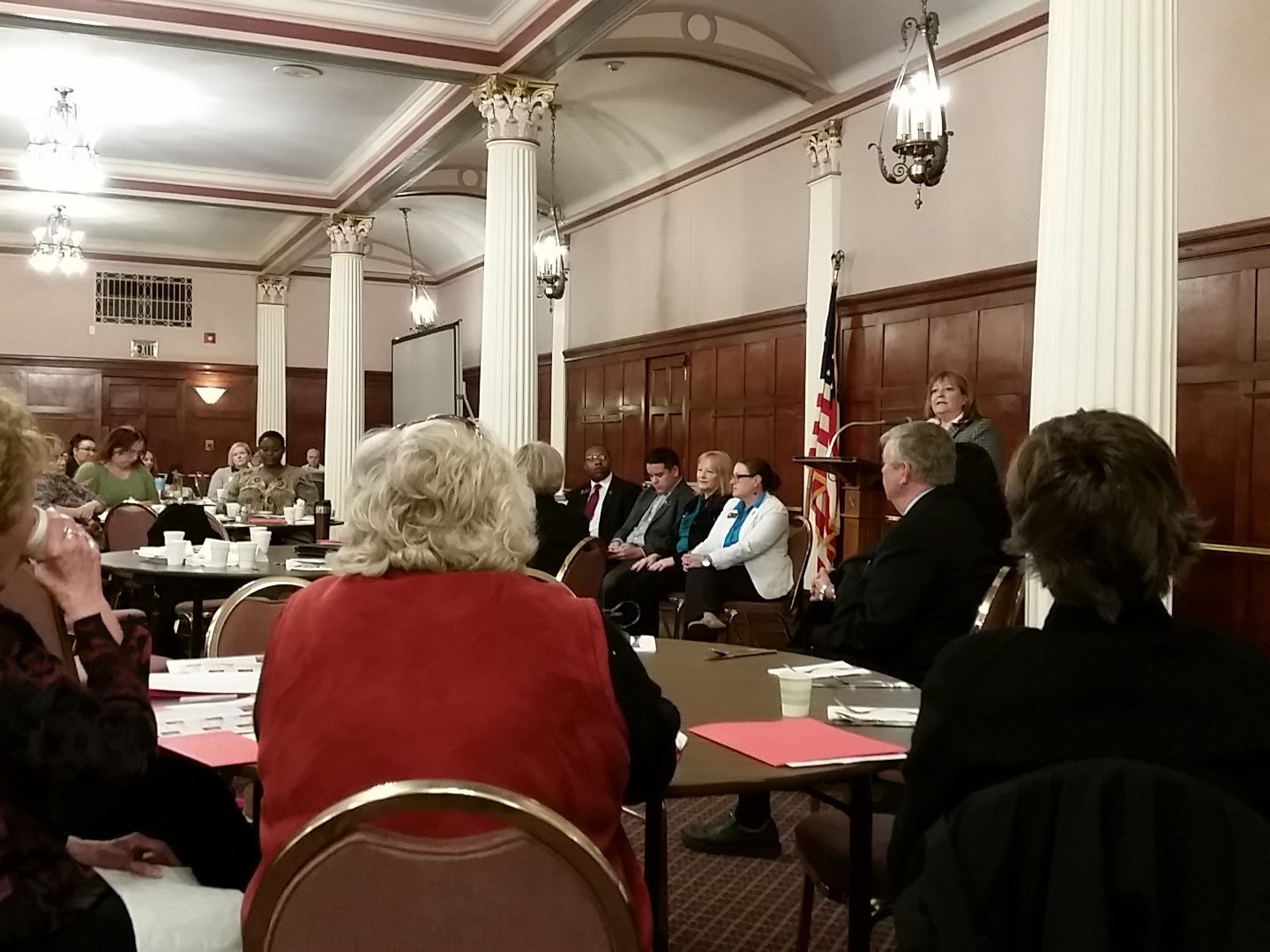Colorado health advocates presented to the Joint Budget Committee on glitch-plagued Public Health Emergency Unwind.
Recent articles
2024 Legislative session: addressing economic challenges at the individual and state level
Addressing economic challenges at the individual and state level after the 2024 Colorado legislative session.
CCLP’s 2024 legislative wrap-up, part 2
CCLP's 2024 legislative wrap-up focused on expanding access to justice, removing administrative burden, supporting progressive tax and wage policies, preserving affordable communities, and reducing health care costs. Part 2/2.
CCLP’s 2024 legislative wrap-up, part 1
CCLP's 2024 legislative wrap-up focused on expanding access to justice, removing administrative burden, supporting progressive tax and wage policies, preserving affordable communities, and reducing health care costs.
Breakfast serves food for thought on women’s issues

On Feb. 23, nearly 200 women – and a handful of intrepid men – gathered at the Denver Scottish Rite Consistory for a morning of camaraderie and stimulating discussion about upcoming legislation affecting women, girls and families.
Co-sponsored by CCLP, the 27th Annual Women’s Legislative Breakfast began with a Q & A with a panel of seven Colorado state legislators who have historically demonstrated sensitivity to the structural issues that impact women: Sen. Larry Crowder, R-Alamosa, Sen. Beth Martinez Humenik, R-Thornton, Sen. Irene Aguilar, D-Denver, Rep. Kit Roupe, R-Colorado Springs, Rep. Daneya Esgar, D-Pueblo, Rep. Dominick Moreno, D-Commerce City and Rep. Jovan Melton, D-Denver. The bipartisan panel discussed the state’s budget challenges, healthcare and economic justice through a gender lens.
While the discussion was lively and constructive, it also highlighted the areas where consensus around the advancement of women in our state breaks down. When the M.C., Peg Perl, asked the legislators if they would support equal pay – in concept, not specific legislation – most panelists responded with a simple and resounding, “Yes!” Others, however, delivered qualified and circuitous answers.
This contrast perfectly teed up Rosemary Lytle’s keynote speech. Rosemary is the Executive Director of Positive Impact Colorado and President of the NAACP Colorado, Montana, and Wyoming State Area Conference. She delivered a speech that was moving, honest and decisively direct.
Lytle began with an excerpt from civil rights’ activist Sojourner Truth’s speech, “Ain’t I a Woman?” — setting the tone for a difficult discussion that does not take center stage in the public discourse often enough.
She asserted that in this “Year of the Woman,” it is imperative that women of every color and background – and the men who are strong enough to stand as allies – link arms and take action as a unified group. If we care about the rights of women, we must believe just as strongly that black lives matter and that the lives of trans women of color matter.
When women — particularly women of color — cry out that they are being treated unjustly, that they are being denied the respect of which they are worthy, that they are being robbed of the wages they deserve, that their families are being torn apart by the many injustices of the criminal justice system, it is not appropriate to respond with, “But…”
Lytle says we have the power to confront the challenges that women of color face. Looking out at the majority-white faces in the crowd, it was apparent that this is something needed to be said and heard.
This brings up the important issue of “intersectionality” – an idea that is sometimes lost in the advocacy world. Intersectionality is the analysis of discrimination faced by anyone who identifies with the multiple social, biological and cultural groups considered out of the mainstream of a patriarchal, white society. It is important to make space to discuss how different types of discrimination intersect, creating unique experiences of marginalization.
This lens must be applied to social justice work for a movement to be truly anti-oppressive. The racism that women of color confront is not divorced from the discrimination they face based on gender identity, nor should it be.
Lytle put it well: “When a white woman gets a cold, black women and Latinas get pneumonia.”
I got the sense that participants left the breakfast with a renewed commitment to raising the issues women — specifically women of color — face. As the co-chair of the Women’s Legislative Breakfast, I was proud to be part of this meaningful event.
– Aubrey Hasvold

